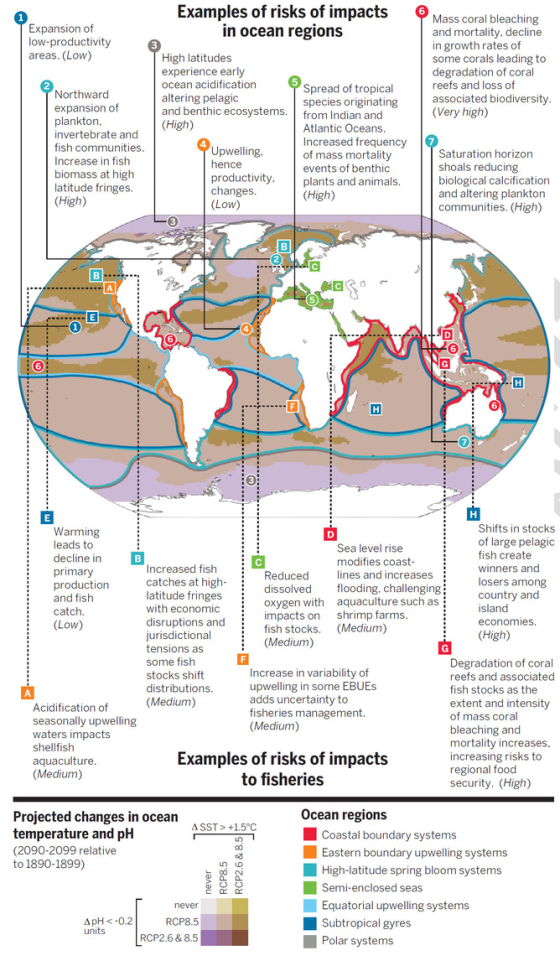A scientific paper published in Science last week warns that our “window of opportunity to save the oceans from major changes is in danger of slamming shut, bringing with it the risk that we will encounter planetary-scale tipping points in the behavior of the climate.”
Our ocean systems are vital parts of the planet we live on. It feeds 3 billion people, regulates the global temperature and atmosphere and essentially determines our weather. “The ocean also has lots of “inertia” – which means that getting the ocean to change takes a lot of energy, but once it begins to change, slowing it down becomes more or less impossible”
The paper have compiled the latest evidence and projections about the ocean under the rapid human-driven climate change currently taking place. And it does not look good. A failure to act on climate change will lead to warmer and more stagnant oceans, some regions will experience declining oxygen levels and productivity, while in other areas ecosystems will be removed or modified.
These consequences will have an effect on fisheries and national economies in many regions. A rapidly changing ocean, with intensifying storms, rising seas and loss of critical coastal features, will make life on the shores truly different than today. “In a few regions, such as the North Sea, temporary increases in fisheries production are being reported, as the ice retreats, seas warm, and productivity increases. But these benefits are few and far between, and are likely to disappear over time as the ocean warms and acidifies further.”

The research adds to the already mounting evidence highlighting the need to act firmly on fossil fuel emissions and other drivers of climate change. Stressing that if we follow the current emission trajectory, we would rather rapidly and significantly alter many ecosystems and the services they provide us. The researchers conclude that “the management options to address ocean impacts narrow as the ocean warms and acidifies. Consequently, any new climate regime that fails to minimize ocean impacts would be incomplete and inadequate”.
To learn more about the findings, see links below.